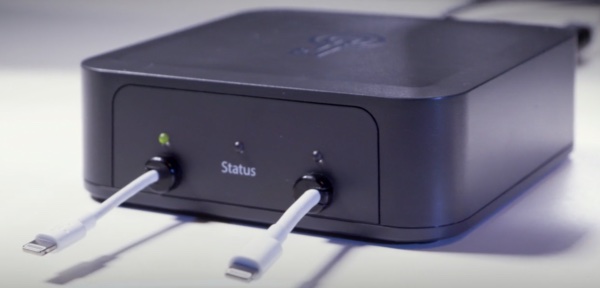The problem is that Apple needs to take a more modern and nuanced look at the role people are expecting a computer to fill in their lives.
They bill the iPad as a computer replacement. For me, an iPad has taken over about 90% of what I'd nomally do with a computer. That leaves working remotely, paying bills, anything requiring a printer, and casual gaming. I've got a 27" monitor that I currently hook up to an old MBP for work because I need the screen real estate. But the bottom line is I don't do enough with the computer to justify dropping $1800 on a 27 inch iMac. If Apple wants to update the Mini - with TB3 it's an ideal modular, expandable machine - I'm all about buying one. If not, I'll just buy a sub-$1,000 PC. But all told, I'd much rather use MacOS than Windows, and I appreciate that MacOS integrates with all of the other Apple products I own.
Which leads me to my next point - ecosystem. It's not just about the margin for a particular product. Lower prices mean access, and access gets people into the Apple ecosystem, which is what Apple really wants. You need look no further than the reinvigoration of the iPad platform since the cheaper 2017 model came out. Maybe an Android phone user buys an iPad or a Mac Mini. That Android user is probably going to be more likely to buy an iPhone the next time. the reverse is also true. Say I decide as a longtime Mac user to make my next computer a PC (a distinct possibility given the current options). Next time I get a new phone, maybe I look at the Android because I want Android Auto in my car since Apple's been so damn stubborn about allowing Waze on Carplay. Next thing you know, they've lost me as a customer completely.
Finally, looking at sales of the existing model is a complete waste. It hasn't been updated since 2014 - of course people aren't going to buy it.
They bill the iPad as a computer replacement. For me, an iPad has taken over about 90% of what I'd nomally do with a computer. That leaves working remotely, paying bills, anything requiring a printer, and casual gaming. I've got a 27" monitor that I currently hook up to an old MBP for work because I need the screen real estate. But the bottom line is I don't do enough with the computer to justify dropping $1800 on a 27 inch iMac. If Apple wants to update the Mini - with TB3 it's an ideal modular, expandable machine - I'm all about buying one. If not, I'll just buy a sub-$1,000 PC. But all told, I'd much rather use MacOS than Windows, and I appreciate that MacOS integrates with all of the other Apple products I own.
Which leads me to my next point - ecosystem. It's not just about the margin for a particular product. Lower prices mean access, and access gets people into the Apple ecosystem, which is what Apple really wants. You need look no further than the reinvigoration of the iPad platform since the cheaper 2017 model came out. Maybe an Android phone user buys an iPad or a Mac Mini. That Android user is probably going to be more likely to buy an iPhone the next time. the reverse is also true. Say I decide as a longtime Mac user to make my next computer a PC (a distinct possibility given the current options). Next time I get a new phone, maybe I look at the Android because I want Android Auto in my car since Apple's been so damn stubborn about allowing Waze on Carplay. Next thing you know, they've lost me as a customer completely.
Finally, looking at sales of the existing model is a complete waste. It hasn't been updated since 2014 - of course people aren't going to buy it.


